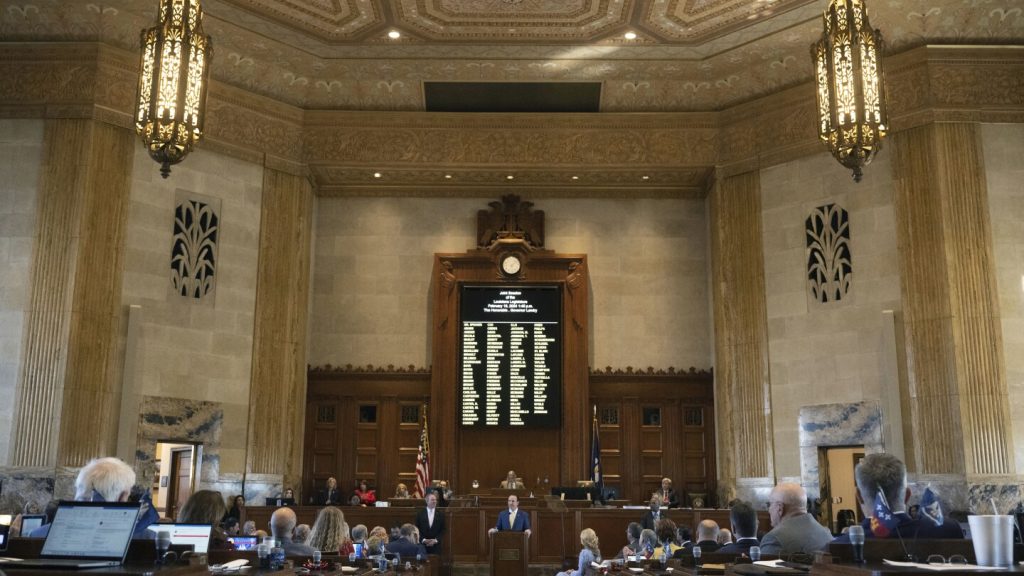Louisiana, a Republican-controlled state, has advanced a bill that would allow state and local law enforcement to arrest and jail individuals who entered the U.S. illegally. The legislation, similar to the controversial law in Texas, is part of a larger trend among GOP-led states seeking to expand their authority over border enforcement amid disputes with the Biden administration. Proponents of the bill argue that Louisiana has the right to defend the nation, accusing the federal government of neglecting its duty to enforce immigration laws. However, opponents criticize the bill as unconstitutional and argue that it will only fuel negative rhetoric towards migrants without actually making the state safer.
Various red states in the nation have been pushing for tougher immigration enforcement measures, with Oklahoma passing a bill to prohibit state revenue from providing benefits to undocumented individuals. Tennessee is awaiting the governor’s signature on a bill that would require law enforcement agencies to cooperate with federal immigration authorities in cases involving people who are in the country illegally. Similar measures are pending in Iowa and Idaho, mirroring parts of the Texas law. Despite not sharing a border with Mexico, Louisiana has seen an increase in bills and policies targeting migrants under new conservative leadership, including banning sanctuary city policies and deploying National Guard members to the border.
The bill in Louisiana would create the offense of “illegal entry or reentry” into the state, encompassing individuals who were previously denied admission, excluded, deported, or removed from the U.S. The legislation passed the Senate along party lines and is now heading to the House. Like the Texas law, which is currently on hold by a federal appeals court, the Louisiana bill would expand the authority of state and local law enforcement and initiate the deportation process. The proposed penalties include up to a year in prison and a $4,000 fine for a first offense, rising to two years in prison and a $10,000 fine for a second offense, with exceptions for certain crimes and victims.
Supporters of the bill argue that it will help prevent illegal border crossings by sharing information and resources with other states participating in Texas’ border security efforts. However, critics see the bill as an overreach of state authority that could lead to increased racial profiling and strain court systems. They argue that it will not make Louisiana safer and will drain state resources without effectively reducing crime. If the bill is approved by the House and signed by the governor, it will only take effect if the Supreme Court upholds the Texas law or if there are amendments to the U.S. Constitution to increase local border enforcement authority. The debate surrounding the bill reflects the broader tensions and legal challenges surrounding state-led immigration enforcement efforts in the current political climate.


